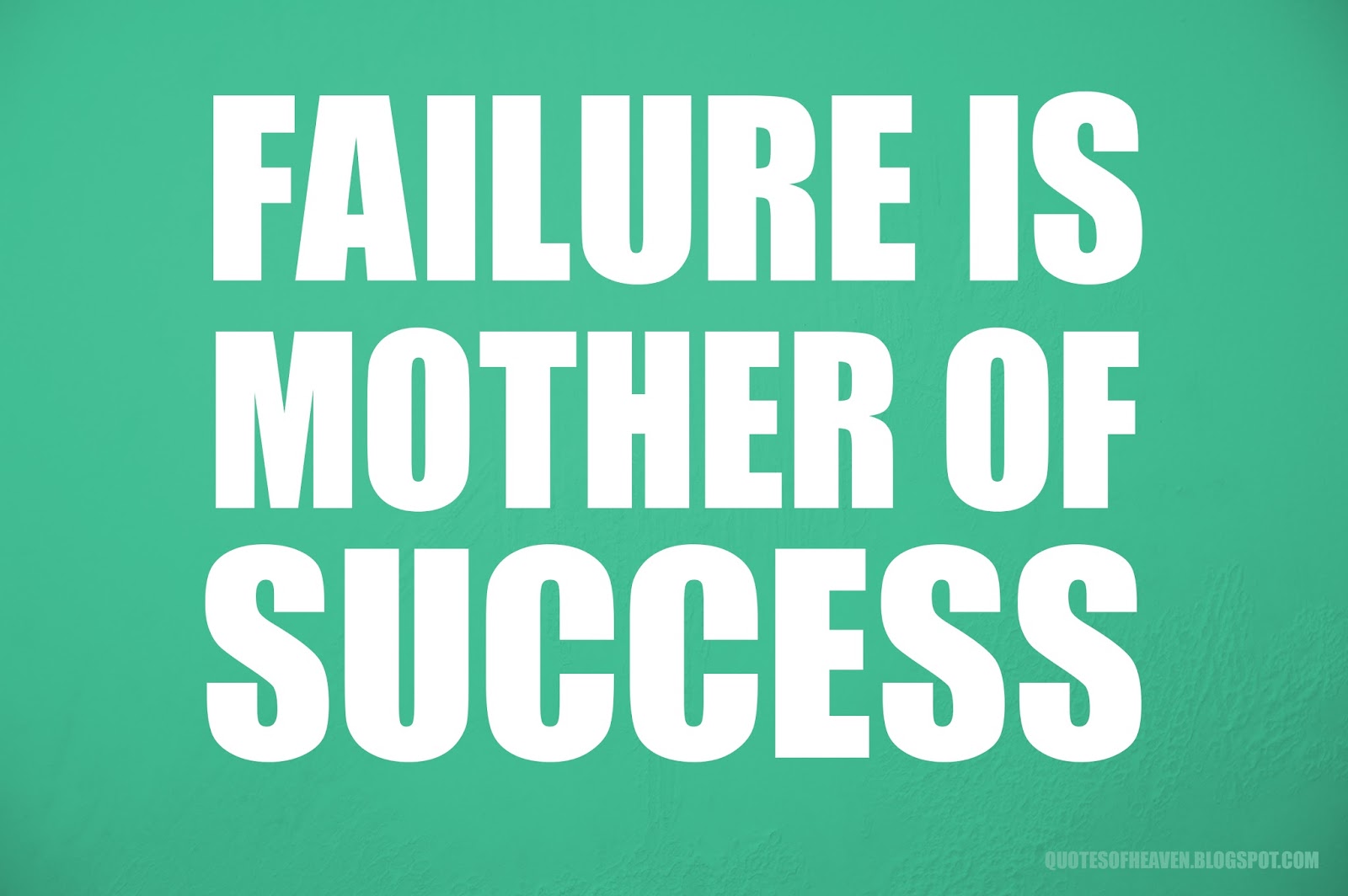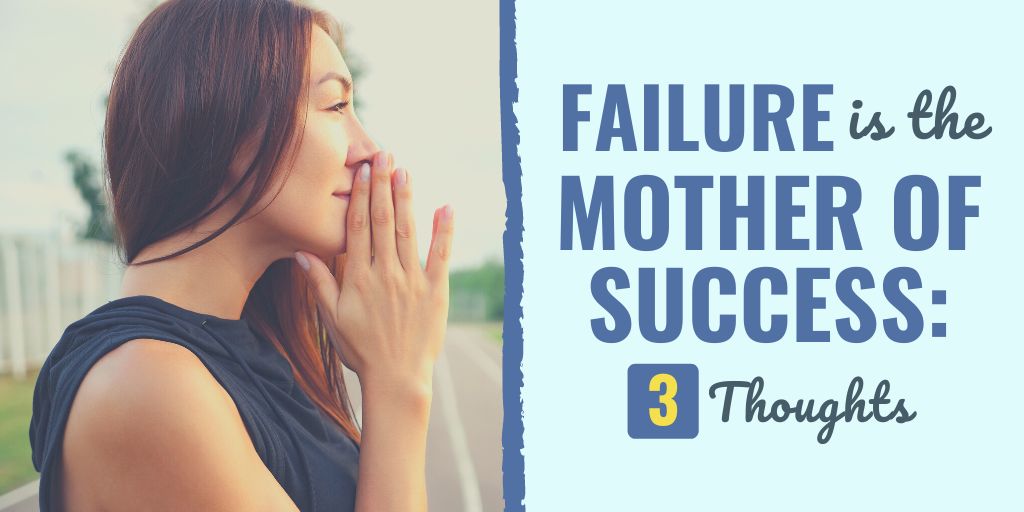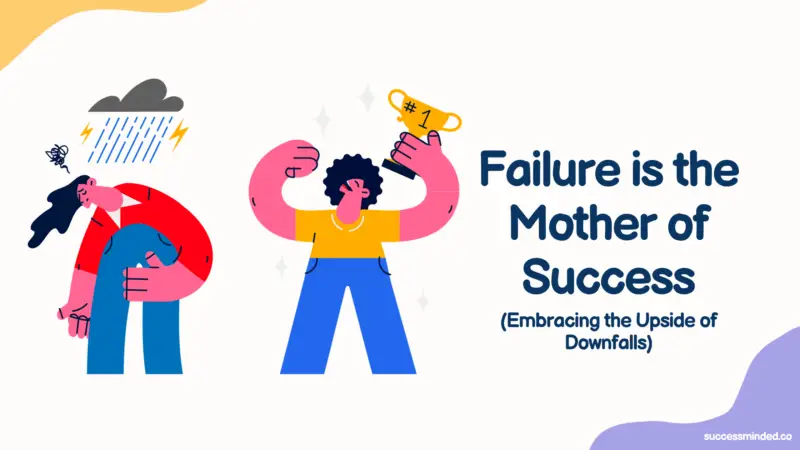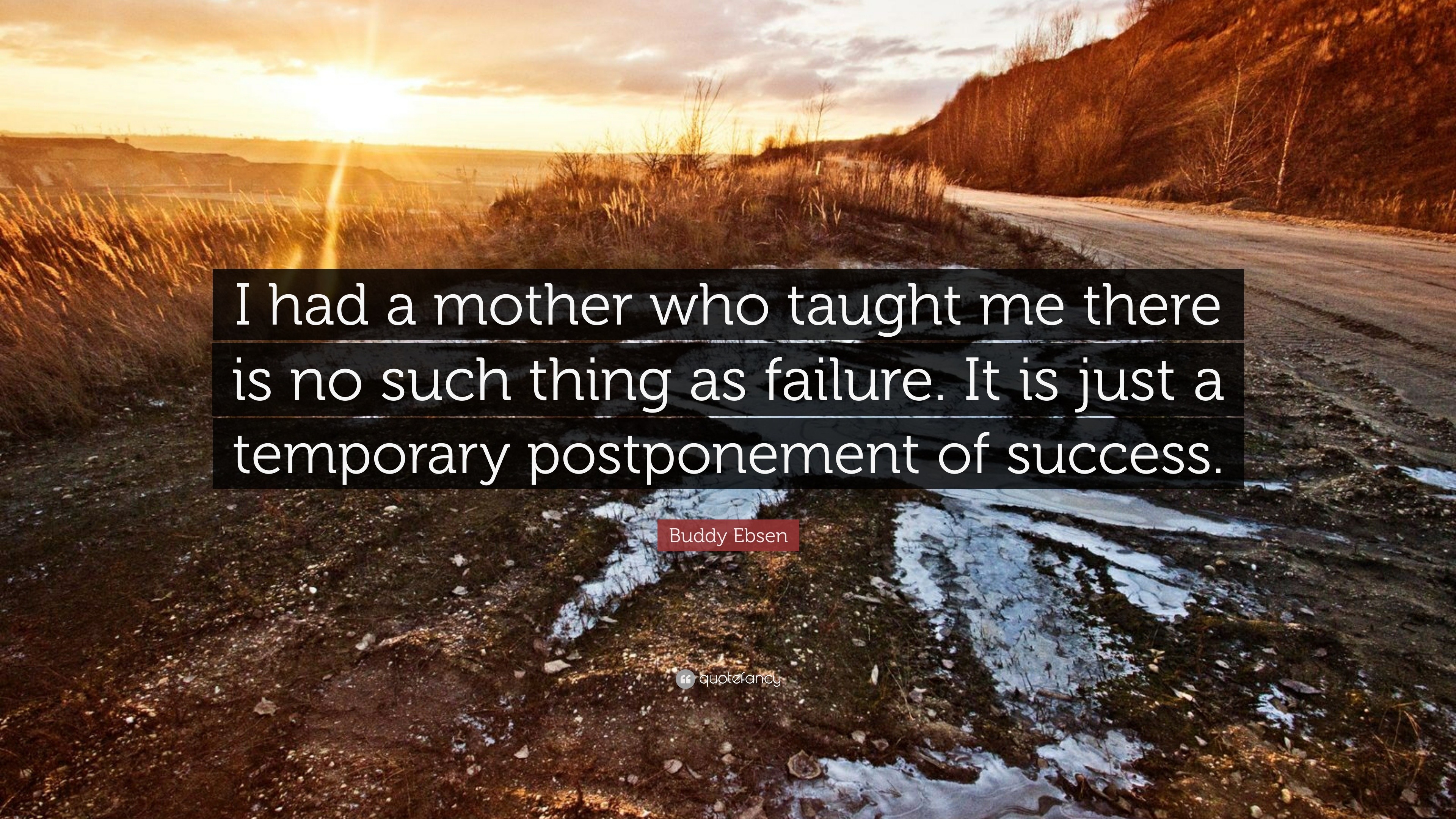Failure Is The Mother Of Success Quote

In the high-stakes world of innovation and achievement, the sting of setback is often seen as a deterrent. But a closer examination reveals a compelling truth: failure, far from being a dead end, is frequently a crucial stepping stone to triumph. This paradoxical relationship, encapsulated in the age-old adage "Failure is the mother of success," resonates across diverse fields, from scientific discovery to entrepreneurial ventures.
This article delves into the intricate connection between failure and success, exploring how embracing mistakes, learning from them, and persevering through challenges are vital components of groundbreaking achievements. We will examine how this principle plays out in various domains, drawing on research, historical examples, and expert insights to illustrate the transformative power of viewing failure not as a final judgment, but as a valuable lesson.
The Scientific Method: A Symphony of Failed Experiments
Science, at its core, is an iterative process built upon the foundation of hypotheses and experiments. The scientific method, the bedrock of modern discovery, inherently acknowledges the inevitability of unsuccessful attempts. Indeed, many landmark scientific breakthroughs emerged from experiments that initially yielded unexpected, even seemingly failed, results.
Consider the discovery of penicillin by Alexander Fleming. He famously abandoned a messy petri dish containing bacteria, only to return later and find that a mold had contaminated the culture, inhibiting bacterial growth. This accidental contamination, initially a "failure" in maintaining a pure culture, ultimately led to the development of one of the most important antibiotics in history.
As the National Institutes of Health (NIH) acknowledges, the pursuit of scientific knowledge inevitably involves dead ends and unforeseen obstacles. These setbacks, however, provide crucial data points, refining understanding and guiding researchers towards more promising avenues of inquiry. Grants are often awarded recognizing the inherent risk of failure but also the potential for transformative discovery.
Entrepreneurship: Navigating the Minefield of Risk
The world of entrepreneurship is rife with stories of businesses that stumbled before they soared. Silicon Valley, the global hub of technological innovation, is particularly known for its culture of embracing failure as a learning experience. Companies like Google and Amazon have openly discussed their past missteps and how those experiences shaped their future successes.
Many venture capitalists understand that a portfolio filled only with "sure things" is unlikely to yield truly disruptive innovation. They often prioritize backing entrepreneurs who have demonstrated resilience and the ability to learn from previous failures. The Small Business Administration (SBA) also provides resources to help small businesses overcome challenges and adapt to changing market conditions.
The Stigma of Failure and the Importance of Reframing
Despite the evident benefits of learning from failure, a societal stigma often surrounds it. This fear of failure can stifle innovation and prevent individuals from taking calculated risks. Overcoming this stigma requires a shift in perspective, viewing failure not as a personal defect but as a natural part of the learning process.
Psychologists emphasize the importance of developing a "growth mindset," a belief that abilities and intelligence can be developed through dedication and hard work. A growth mindset encourages individuals to embrace challenges, persist through obstacles, and view failure as an opportunity for growth, rather than a fixed limitation.
Organizations can foster a culture of psychological safety, where employees feel comfortable taking risks and admitting mistakes without fear of punishment. This environment encourages open communication and allows for the rapid dissemination of lessons learned from both successes and failures.
Beyond the Binary: Success as a Process of Continuous Improvement
Ultimately, the relationship between failure and success is not a simple binary. Instead, it is a dynamic process of continuous improvement. Each setback provides an opportunity to refine strategies, adapt to changing circumstances, and emerge stronger and more resilient. Viewing success as an ongoing journey, rather than a destination, allows individuals and organizations to embrace the inevitable challenges and setbacks along the way.
The mantra "Fail fast, fail often" has become a popular maxim in the tech world, emphasizing the importance of rapid experimentation and iteration. This approach allows for the identification and correction of flaws early in the development process, minimizing the potential for costly mistakes later on. It's not about celebrating failure, but recognizing its inherent value as a source of learning.
In conclusion, while the pain of failure is undeniable, its potential for fostering growth and innovation is even greater. By embracing mistakes, learning from setbacks, and cultivating a culture of resilience, individuals and organizations can transform failure from a roadblock into a stepping stone on the path to success. The lessons learned in the face of adversity often pave the way for unprecedented breakthroughs and enduring achievements.


















